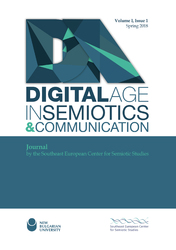Personalization algorithms – limiting the scope of discovery? How algorithms force out serendipity
Personalization algorithms – limiting the scope of discovery? How algorithms force out serendipity
Author(s): Mihail VuzharovSubject(s): Philosophy, Social Sciences, Education, Semiology, Higher Education
Published by: Нов български университет
Keywords: Social media; Algorithms; Suggestion; Discovery;Encyclopedia;
Summary/Abstract: The Digital has become ubiquitous and inevitable. Each day, fewer non-digitals remain, as others become digital immigrants, and finally being succeeded by digital natives. Billions of devices are now connected, as remote access and IoT-added-value have become commonplace. Cloud services have supplanted old-school digital products, personal data has become more valuable than most other resources, while our attention span has been shrinking, constantly besieged by millions of signals. It is now virtually impossible for anyone to exist outside of the Digital; it is virtually impossible not to rely on online services, not to have our data collected, not to have information tailored especially for our personal consumption, based on our unique digital footprints. UX Design paradigms have been shifting, moving us further from simple interaction, departing from on-screen interfaces, and simultaneously eliminating the need for a user’s encyclopedic competence (as per Eco) and even going past navigational competence (as per Bankov). Communication structures define communication outcomes. Communication structures literally shape our world, as Benedict Anderson would argue. While his analysis turns to the printing press as a causal mechanism for the formation of the nation states, one could argue that the algorithm- based structure of information delivery means a departure from the potential for serendipitous discovery, changing our systems of expectations, the way we think, and the way we perceive the world. If the entire system is based on our past, a mirror image of ourselves, this would mean that we are more likely to receive answers pertaining to a world that is entirely within our scope. The farther we depart from encyclopedic competence, and then from navigational competence (where we were at least able to browse into areas unknown), the farther we are moving from the unfamiliar. There is an event horizon, the information beyond which is completely outside our reach, and this event horizon is more and more tightly enclosing us. Essentially, our entire information inflow is based on a user model, derived by various algorithms, deep learning mechanisms and AI systems – a veritable black box, which, in turn, weaves a personalized and unique Dynamic Text for a very special Echian “model reader” – the “model user”. We will try to demonstrate how this relationship may lead to a limited outlook.
Journal: Digital Age in Semiotics & Communication
- Issue Year: I/2018
- Issue No: 1
- Page Range: 19-33
- Page Count: 15
- Language: English

